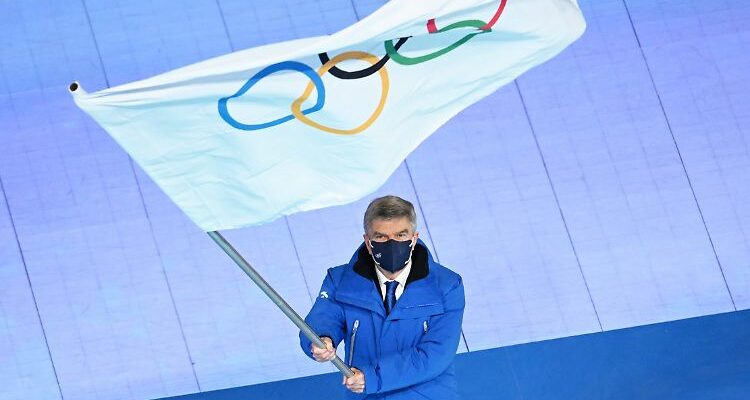IOC boss Bach against Ukraine
How Russia’s war threatens the Olympics
2/10/2023 3:44 p.m
The debate about the possible return of Russian and Belarusian athletes is dividing the sport. One question is: Are neutral flag athletes part of the system that brought war to the world? Another: Are Ukraine boycott threats legitimate? There are no answers.
It can hardly have been a coincidence that a five-page letter with the sender Thomas Bach was passed on to several editorial offices on Thursday. In it, the IOC President sharply criticized the boycott threats made by the Olympic Committee of Ukraine. This behavior violates “the foundations and principles of the Olympic movement,” Bach wrote to the Ukrainian NOC President Wadym Hutzajt.
Bach’s position on the increasingly harsh voices from Ukraine is just as well known as Kiev’s opinion on the International Olympic Committee’s push to consider reintegrating athletes from Russia and Belarus – albeit under strict neutrality. From the Ukrainian point of view, the timing with which the content of this letter, which was written on January 31, was disseminated, could not have been better.
Just one day later, politicians from 30 countries, including Germany, were meeting under British leadership. The aim of the sports summit on Friday: to work out a common position on the IOC initiative, which could enable competitions between Ukrainian activists and so-called “neutrals” from the attacking parties Russia and Belarus at the 2024 Summer Olympics in Paris.
Paris threatens to exclude Russian athletes
According to British media reports, Ukrainian President Volodymyr Zelenskyj was connected via video and renewed his stance that, after Russia’s invasion of Ukraine almost a year ago, under no conditions should athletes from the huge empire compete internationally. The other participating politicians are likely to follow his stance.
After all, two camps have formed over the past few weeks and months. The larger faction knows the IOC behind them, which refers to the unifying task of sport. The group of supporters includes numerous National Olympic Committees, international professional associations and, last but not least, two United Nations experts repeatedly cited by the Rings Organization. The other side is recruited primarily from government representatives from mostly European nations, athletes’ organizations and Western, Baltic and, of course, Ukrainian individual athletes.
“The fact that the IOC is apparently opening the door again to Russian athletes and wants to enable them to take part in the Olympic Games is completely the wrong way,” Federal Interior Minister Nancy Faeser told the FAZ at the end of January. The SPD politician added: “Sport should be clear in its condemnation of the brutal war that Vladimir Putin is waging against the Ukrainian civilian population. Major sporting events do not take place in a vacuum.”
Anne Hidalgo, after all the mayor of the next Olympic city of Paris, reiterated her refusal to allow Russian and Belarusian athletes to take part in the Olympics on Thursday. “As long as Russian forces keep bombing you and occupying your territory, I don’t want Russian athletes to take part in sporting events,” the 63-year-old told the city council during a visit to the Ukrainian capital, Kyiv. In his letter to the Ukrainian NOK, Bach asserted that the participation of Russian and Belarusian athletes “had not even been specifically discussed”. Nevertheless, the Ukrainians are no longer alone with their boycott threats.
